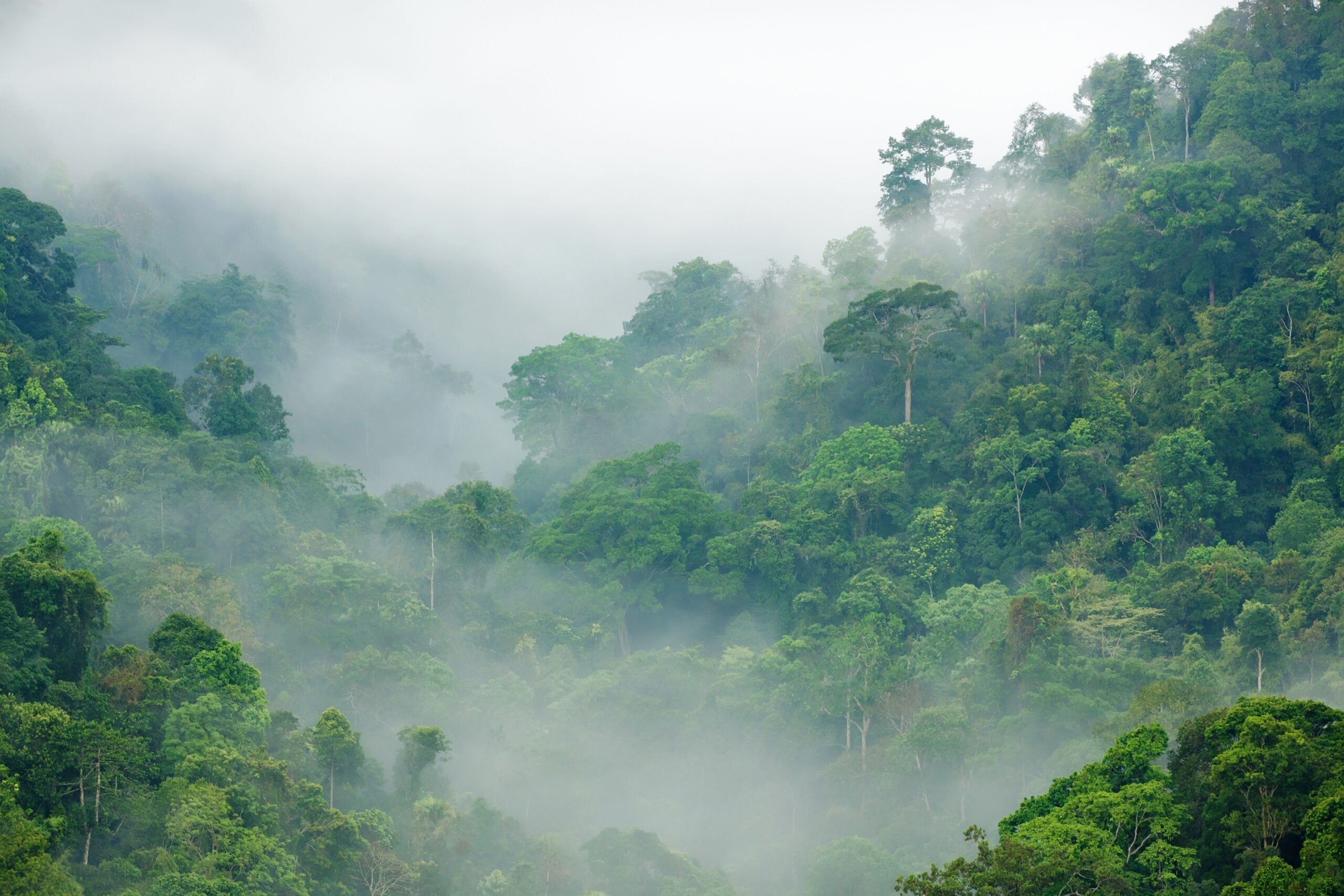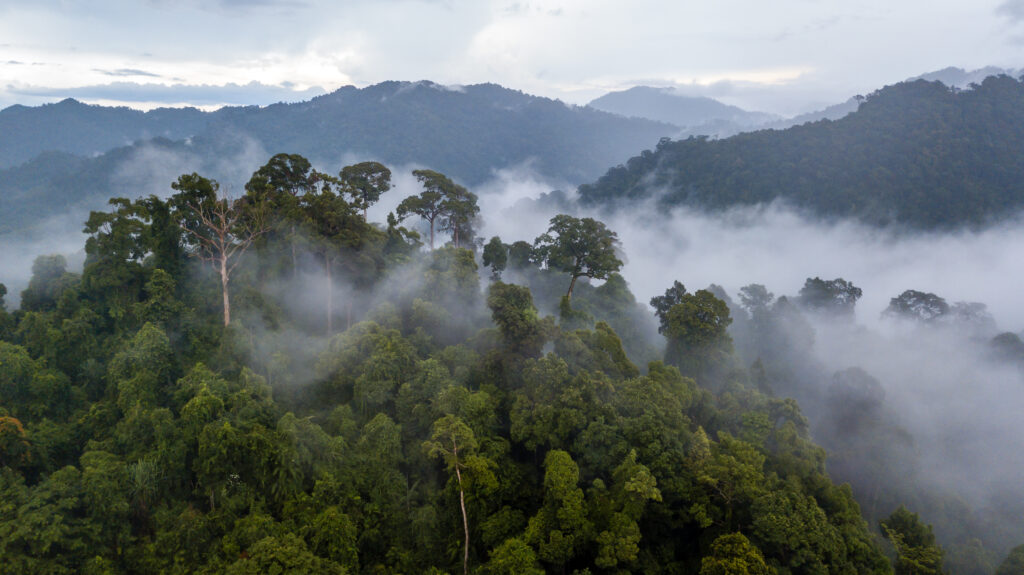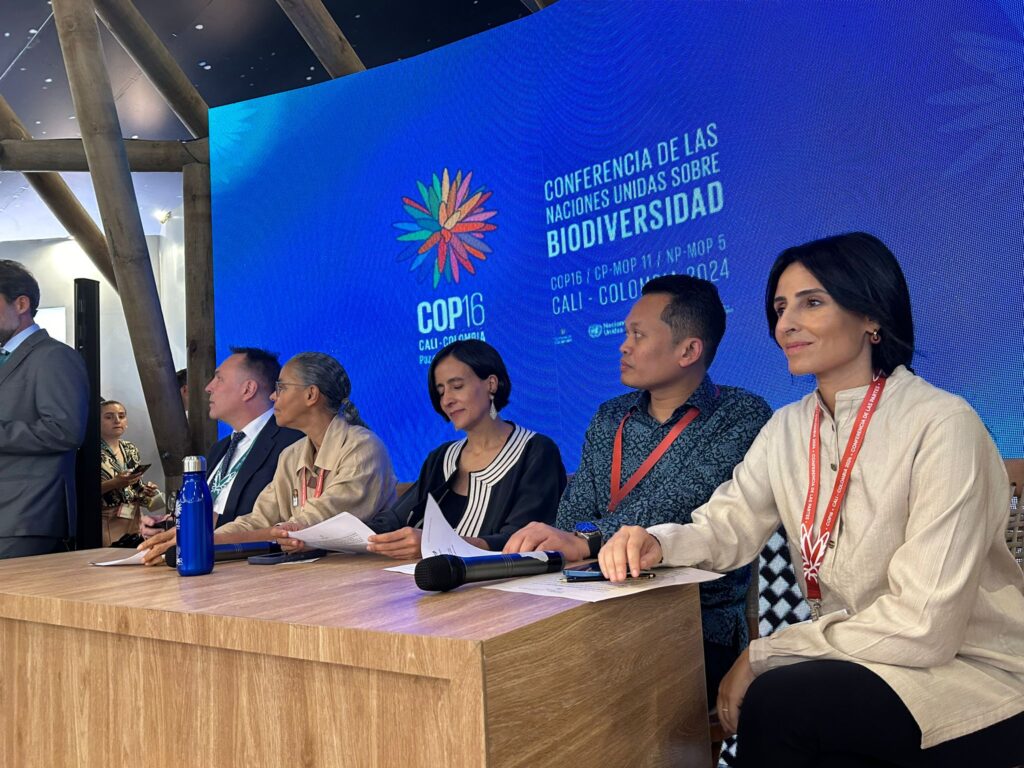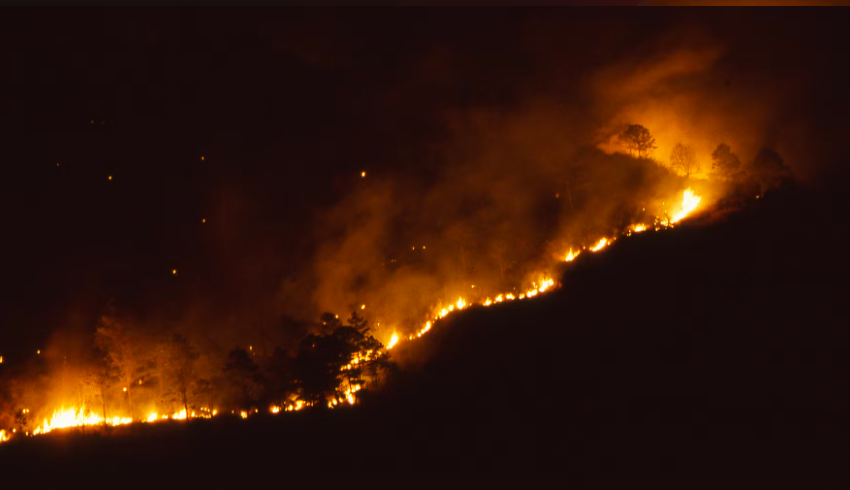
Forests
Over 80% of the world’s land-based species live in or rely on forests, particularly tropical rainforests, which are teeming with life in every layer. From the forest floor to the canopy, countless species exist, including colorful birds, rare plants, mysterious insects, and large mammals. Each species contributes to the intricate web that makes the rainforest one of the planet’s most vibrant and diverse habitats.
Forests are the Most Important Natural Ecosystems on Land
The world’s forests are home to an incredible number of animals, plants, microorganisms, and people. Tropical rainforests cover only five to seven percent of the Earth’s land area but contain more species than any other habitat on Earth. Over 1.6 billion people globally depend on the resources, especially water, that forests provide. At the same time, forests absorb and store vast amounts of carbon, which turns into the greenhouse gas CO2 when released. Forests thus play a key role in slowing climate change and are essential for a stable global climate. In one way or another, we are all dependent on forests.
This is why Forests of the World works to conserve and protect forests, especially the tropical ones, which are the richest in biodiversity. We work in some of the world’s so-called biodiversity hotspots, areas with an extremely high concentration of biological diversity, which are threatened by habitat loss and other human activities. We collaborate with local partners, Indigenous Peoples, and other communities who live in and off the forests. Their knowledge of forests is essential to making a real and noticeable difference.
Forests of the World also works to restore and establish more wild forest nature in Denmark. But while tropical forests are being cleared at an alarming rate, forests in Denmark have long since disappeared. Therefore, our forest efforts in Denmark are primarily focused on conserving forests through re-establishing and securing wild forest nature. We do this through political efforts and by increasing awareness of the benefits of wild forests for biodiversity and climate.
Globally and in the EU we also work for creating change at the political stage. In addition to our practical work locally in the tropical forests — and together with our political work in Denmark — we aim to influence local, regional, and global legislation on forestry, territories, land use, definitions of natural habitat types, market mechanisms, and much more.

Deforestation
Deforestation accounts for 12 to 20 percent of global CO2 emissions. It threatens numerous species, many of which have already gone extinct due to forest loss. Indigenous peoples and local communities who depend on forests for their livelihoods face destruction of their way of life when forests are cut down, destroyed, or degraded.
Wild Forest Nature
In Denmark, we focus on restoring wild forest nature and promoting it politically, because wild forests can play a significant role in Denmark’s efforts towards tackling climate change and enhancing biodiversity.



